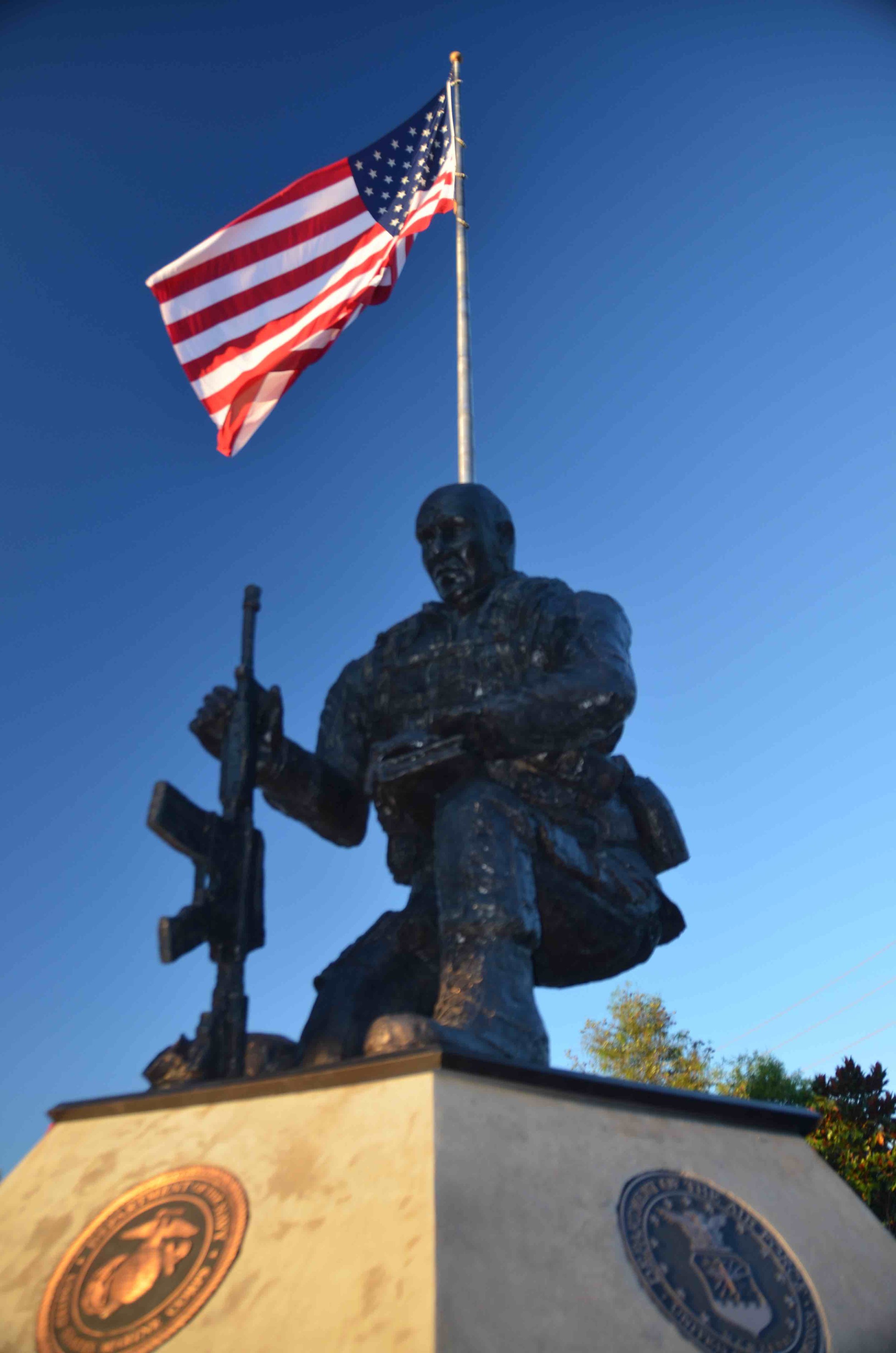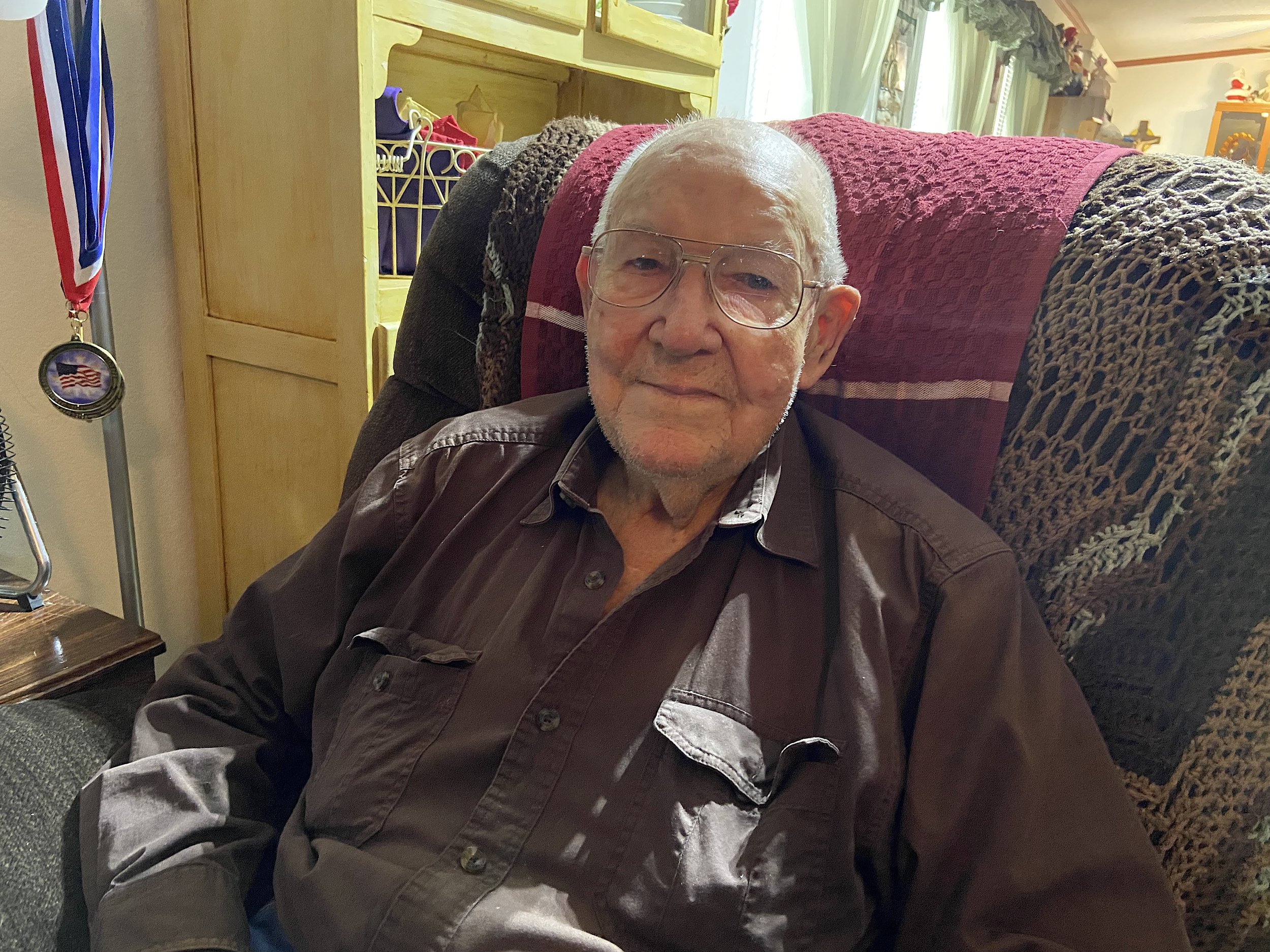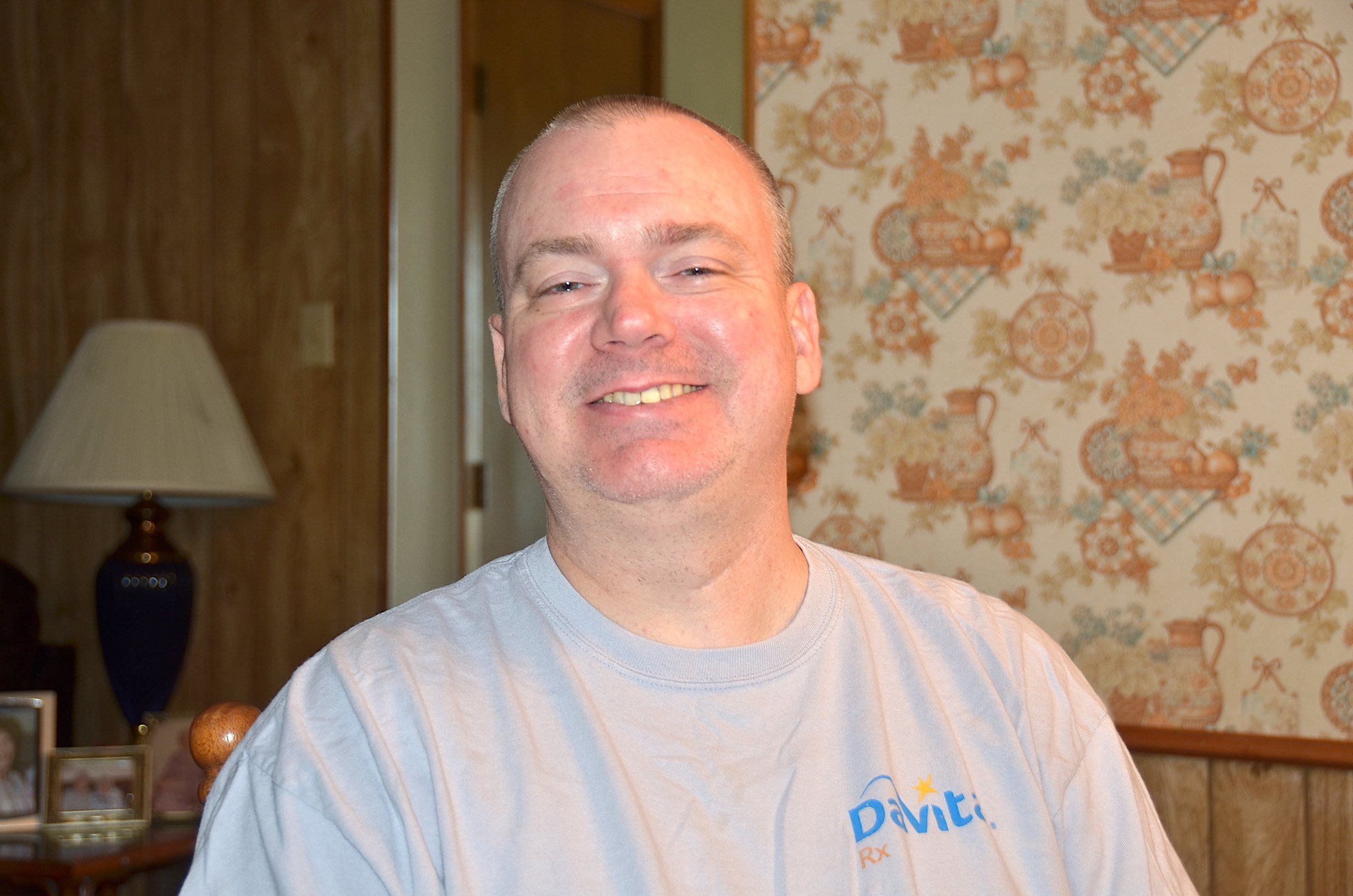HH Cox
There was a lot of talk coming out of Europe and the war that was raging. I felt like eventually I was going to be drafted. The draft did finally catch up to me and I was drafted into the Army on December 1st 1944,” he said. HH went to boot camp on the 24th of December 1944 at Ft. Hood, Texas. It was close enough that I was able to make it home on the weekends. I was in boot for seventeen weeks graduating on April 6, 1945. Having worked on the farm bailing hay and picking cotton the physical part was pretty easy for me in Boot Camp,” laughed HH.
David Crim
“I had two friends in college who were going to drop out and join the Air Force. The Vietnam War was going on and we had an active draft lottery. They wanted me to join them. So, we went to Tyler and talked with the local recruiter and took some tests. I did everything but sign on the line but felt I needed to tell my parents first. I sat down with my dad and told him about it. it was only the second time I saw him cry. He did not want me to go thru what he had experienced.”
Sam Deen
“The first time I took the SAT, I scored on the Forrest Gump level. It was in the low 900s. Well outside the range for West Point attendees. I took the SATs five times. Every time I got a little better. I finally got in after combing all my tests and ended up in “BEAST BARRACKS,” at West Point.
Ted Deen
Ted graduated from High School and was drafted into the Army. “I was still in high school when Pearl Harbor was attacked, I just sat there, I knew we were going to go to war.” Ted went to basic training in Ft. Sill Oklahoma for 13 weeks. “I went directly from boot camp to overseas. I saw very little time in the states. I was sent to the Philippine Islands and we were ready to invade Japan In August,” said Ted.
Roy Fulps
“I joined the Army Reserves in November 1972 and got out in 1989. It was easy work for me so I kept re-enlisting every six years. About five months after I joined the Army I got my draft notice which is unusual because most people get their draft notice then join the military. I got married in June of 1973 and had to go to basic training in August. I went to basic at Fort Leonard Wood in Missouri,” recalled Roy
Doy Harmon
My brother Ray was a mechanic and was already in the National Guard in Terrell. He had a lot of influence in me joining the National guard. He was seven years older than me and in 1958 we moved to Texas. I had to join something, otherwise I would have been drafted into one of the military services.
Allen Harrell
“I worked a lot around the farm as a young boy. In high school I was the quarterback of the football team and ran track. The football team was mediocre. I was the smallest man on the team and played both offense and safety on defense. I didn’t get a scholarship but I did attend Florida State for one semester. I majored in campusology,” he laughed. “Basket weaving,” I asked, having myself graduated from Florida. “I basically had a good time,” Allen continued. “My major was girls and went there mostly to party,”
Juan Herrera
“I have been living in Van Zandt County since 2002. My mom and three kids lived out here. My wife, Crystal and I have been married 19 years. Crystal used to bartend up at the VFW next to the interstate near the Ford House. They had a meeting and they were talking about the Veterans Memorial in Canton. This was around 2005. TexDot donated the land and they were looking for a veteran from the county to pose for the Kneeling Soldier Memorial on their Plaza. My wife volunteered me. “
Mack Hutchins
“My dad was a farmer,” said Mack sitting in his home for our interview. “He had about 130-acres where he grew cotton, corn, peas, peanuts and sweat potatoes … We had it hard, but we grew everything we ate and ate everything we grew. We ate like Kings. We never did have much money, but we were never wanting for anything. Dad always felt proud that he never needed any of Roosevelt’s help when he came in as President. He believed in taking care of yourself and your family.
Gerald Lasater
“I was 17 years old and volunteered for the Army. I was too young to join so my mother had to sign for me. I had been in the Army ROTC in High School so I knew a little bit about the military. I signed up for four years in Wichita Falls and went to boot camp in “Fort Lost in the Woods Misery,” known as Fort Leonard Wood, Missouri,”
Bob Pennington
“I worked can till can’t,” laughed Bob. “Dad and I had a team of mules until we bought a Case tractor and all the equipment like a disk and cultivator in 1949. I doubt you could find many people today that could hook up a team of horses,” Bob said emphatically.
Bob looked out his window and pointed to all the acres he planted as a boy. “I remember those fertilizer sacks came in 100 lb. bags. I don’t know how I lifted them so high up on that tractor, I had to use a stool. That was a lot of hard work,”
Tim Pennington
After taking college courses Tim decided he was not that interested in continuing school so he went over to Tyler and talked with an Air Force recruiter. He had talked to his dad about the Army and thought the Air Force was the right way to go. Tim scored a 93 on the test and had lots of options for a career path. The year was 1991.
Jerry Powell
With few job opportunities in Wills Point Jerry decided to join the military in September of 1995. He enlisted in Dallas and shortly after was shipped off to Ft. Leonard Wood, Missouri for boot camp. His MOS was 91 Bravo, combat medic. Jerry went to Fort Sam Houston for medical training. “They had the best food in the world,”
Jim Sharp
Jim Sharp was in the U.S. Army from 1951 – 1953. He served in Korea during wartime. “I was working in San Angelo, Texas as a cook in a hospital. People had tuberculosis and stuff like that and Uncle Sam called me. I was drafted into the Army and served two years. I went to boot camp at Fort Leonard in Missouri.”
Don Strimpel
“I grew up about 18-miles south of Detroit in the country on a 100-acre farm in Monroe, Michigan. I went to a Christian School and a private High School, being raised Catholic. I worked in the cafeteria to help pay for my way thru High School. During the day I worked at a truck farm pulling sweet corn and cutting cabbage among the migrants. My dad grew soy beans, corn and a little bit of alfalfa and hay. I was plowing and disking in the 5th grade,”
Byron Terry
“As a kid growing up on a farm in Hope, Arkansas. We lived about seven miles from town. My dad worked for 50 cents a day. When the war came they bumped up the minimum wage to 40 cents an hour. When we went to town we travelled in a horse and wagon. We grew cotton, corn and other vegetables.“
George Tidmore
George was drafted into the Army in 1948 and served until 1951, and then served five years in the Army Reserve. He remained stateside during his entire career. George went to boot camp in Ft. Smith, Arkansas. “When I was drafted they called me up and at the time I had a hernia. The doctor said the hospital was full and there were lots of wounded people coming back from the war.
C.A. Waites
C.A. was drafted into the Army when he was 18 years old. “I was out I the field hoeing sweet potatoes when I heard the Japanese had bombed us at Pearl Harbor. We listened to it on the radio. I didn’t like the Army very much. I had never been away from home, and I just didn’t like it. In the Army, I was married and making about $50 a month.”
Ron and Joyce Williams
According to Joyce, “the only time we were ever working together in the same Unit was in the 126th medical company air ambulance. That was in Sacramento, California at a SAC base called Mather Air Force Base. We were in the same flight platoon while in the Reserves.”
Pat Wright
When Pat was a teenager she was very athletic. I was a good volleyball and softball player and I could run too. She played shortstop on the softball team and was a pretty good hitter. I wanted to stay at the Cartwright School but this was 1966 and the beginning of integration. I was transferred to Wills Point High and it was a struggle for my race and the white kids. It wasn’t a good time.




















